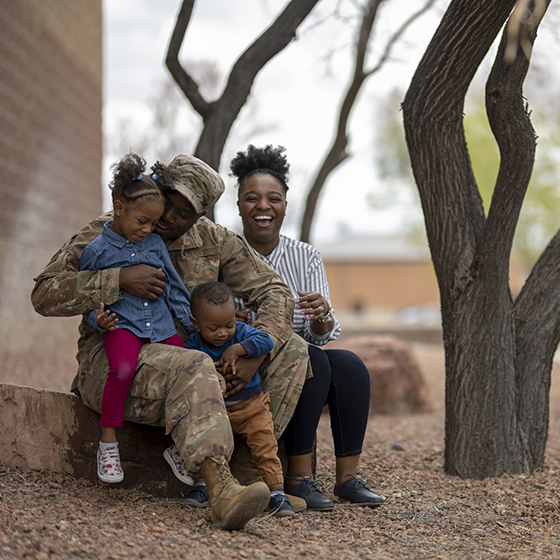2024 Financial Capability Survey

Unique Financial Challenges Faced by Military Families
Data from the 2024 NFCC Financial Literacy and Preparedness Survey sheds light on the unique financial challenges they face. The research, conducted by The Harris Poll and sponsored by the Wells Fargo Foundation, found that military households (service members and military spouses) are more likely than the general population to experience financial strain, utilize non-traditional financial services, and have a strong desire for professional financial guidance.

Financial Stress Among Military Households
Military households are more likely to report financial difficulties, such as dipping into savings to pay for daily expenses or increased spending on credit cards.
The study found a higher prevalence of behaviors indicating financial stress among military households than civilians, such as missed credit card payments (20% and 15% vs 8%, respectively) or transferring debt between cards (23% and 14% vs 7%).

Financial Risk
Military households are more likely to use potentially risky non-bank financial services in the past 3 months like payday loans, prepaid debit cards, and cryptocurrency compared to civilians.
Military service members and military spouses have a high rate of cryptocurrency use compared to the general population (27% and 28% vs 11%, respectively), highlighting the need for education on potential security risks and disclosure requirements.

Knowledge and Financial Guidance
Despite facing financial challenges, military service members and veterans are more likely than the general population to grade their personal finance knowledge an A or B (58% and 64% vs 53% respectively).
Additionally, military service members and military spouses strongly agree they could benefit from professional financial advice to everyday financial questions (36%and 40%, respectively)

Survey Key Findings
Nearly one-third of Americans (32%) are just getting by financially, and a staggering six in ten (62%) fear government instability will harm their finances in the next 12 months. This pervasive anxiety is hindering long-term financial planning, with around half feeling uncertainty makes achieving their goals impossible.
Financial Anxiety Soars as Americans Doubt Ability to Reach Goals
Personal Finance Worries
Roughly 6 in 10 (61%) feel most improvements in the U.S. economy don’t benefit people like them.
More than half (55%) agree that uncertainty in the U.S. economy makes it impossible to achieve their long-term financial goals.
At least one-quarter of Americans are concerned their money won’t last (39%), or feel they will never have the things they want in life because of their financial situation (24%).

Financial Challenges
1 in 3 (31%) don’t pay all their bills on time – up from 27% last year.
Only approximately 2 in 5 Americans (42%) have a budget & keep track of spending.
Nearly 4 in 10 (39%) are concerned the money they have or will save won’t last, and top financial concerns remain concentrated on the lack of savings (27%).

Knowledge of Personal Finance
Fewer Americans give themselves an A or B when considering their own knowledge of personal finance (53% vs 57% in 2023).
An increasing number feel that considering what they already know about personal finance, they could still benefit from some advice and answers to everyday financial questions from a professional (80% vs 77% in 2023)

The Harris Poll
Founded in 1956, The Harris Poll is one of the longest running surveys in the U.S. tracking public opinion, motivations, and social sentiments. Every year, we poll millions of people on the trends that are shaping our modern world.

Funding provided by

